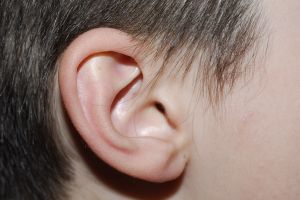On March 20, the Illinois Supreme Court overturned the state’s controversial audio eavesdropping law on the grounds that it was unconstitutional. The court ruled that the eavesdropping law, which made it a felony to record and publish speech without the consent of all parties, was an overly broad restriction of the first amendment right of free speech. If you or someone you know has been charged or convicted under the Illinois audio eavesdropping act, contact an Illinois criminal defense attorney immediately to discuss having your case dismissed and your record expunged.
Illinois Audio Eavesdropping Act
The Illinois audio eavesdropping act made it a felony to knowingly and intentional ly use a device to either listen to, or record, any part of a conversation, unless the recording was made with the consent of all parties. It also prohibited divulging the conversation in any manner. A first offense was a Class 4 felony, punishable by one to three years in prison. A second offense was a Class 3 felony, punishable by three to five years in prison. Both were also subject to imposition of up to a $25,000 fine.
ly use a device to either listen to, or record, any part of a conversation, unless the recording was made with the consent of all parties. It also prohibited divulging the conversation in any manner. A first offense was a Class 4 felony, punishable by one to three years in prison. A second offense was a Class 3 felony, punishable by three to five years in prison. Both were also subject to imposition of up to a $25,000 fine.
Annabel Melongo and the Illinois Audio Eavesdropping Act
The case was brought before the Illinois Supreme Court in People of the State of Illinois vs. Annabel Melongo. Ms. Melongo was charged in a Cook County trial court after she recorded a court employee and then published the recordings on her blog. Ms. Melongo failed to get the court employee’s permission prior to recording the conversation.
Ms. Melongo’s first trial ended in a mistrial, with the jury being unable to come to a decision. The prosecution retried the case, and in the second hearing Ms. Melongo argued that the eavesdropping act violated the First Amendment’s right of free speech. The trial court agreed and declared the statute unconstitutional, and the prosecutor appealed. Ms. Melongo spent 20 months in jail awaiting trial.
Illinois Audio Eavesdropping Act Declared Unconstitutional
The court ruled that the Illinois eavesdropping act violated the First Amendment right of free speech because it was too broad. The statute’s intent was to protect private conversations from being recorded and shared. If you meet with your attorney, for example, you shouldn’t have to worry that somebody is sitting outside the door with a cell phone in hand, recording the conversation with the intent of sharing it. You have an expectation of privacy because you are behind closed doors, in a private meeting with your attorney.
The court found that the statute, as written, made all conversations private, even those where a person would not have a reasonable expectation of privacy. For example, if you recorded a person talking loudly on his cell phone on the bus, a husband and wife arguing in a public park, or fans screaming at a Chicago Bulls game, you could be charged and convicted of violating the eavesdropping act – even though none of those people should expect that their conversations are private.
Because the court found the recording part of the eavesdropping act unconstitutional, it also found that the prohibition against sharing the conversation unconstitutional as well. Not only does this make sense from a legal standpoint – if you have the right to record, you should have the right to publish – it makes sense from a practical standpoint as well.
Consider that a newspaper reporter could attend a court hearing, take notes on the proceeding, and then publish an article on what he saw and heard, without the fear of arrest, conviction and jail time. But if that same reporter recorded the hearing, because he didn’t want to risk jotting anything down wrong, under the eavesdropping act he would face criminal prosecution. What is the difference between the two? There is none, which is why the court declared the law unconstitutional. Continue reading
 Chicago Criminal Lawyer Blog
Chicago Criminal Lawyer Blog


